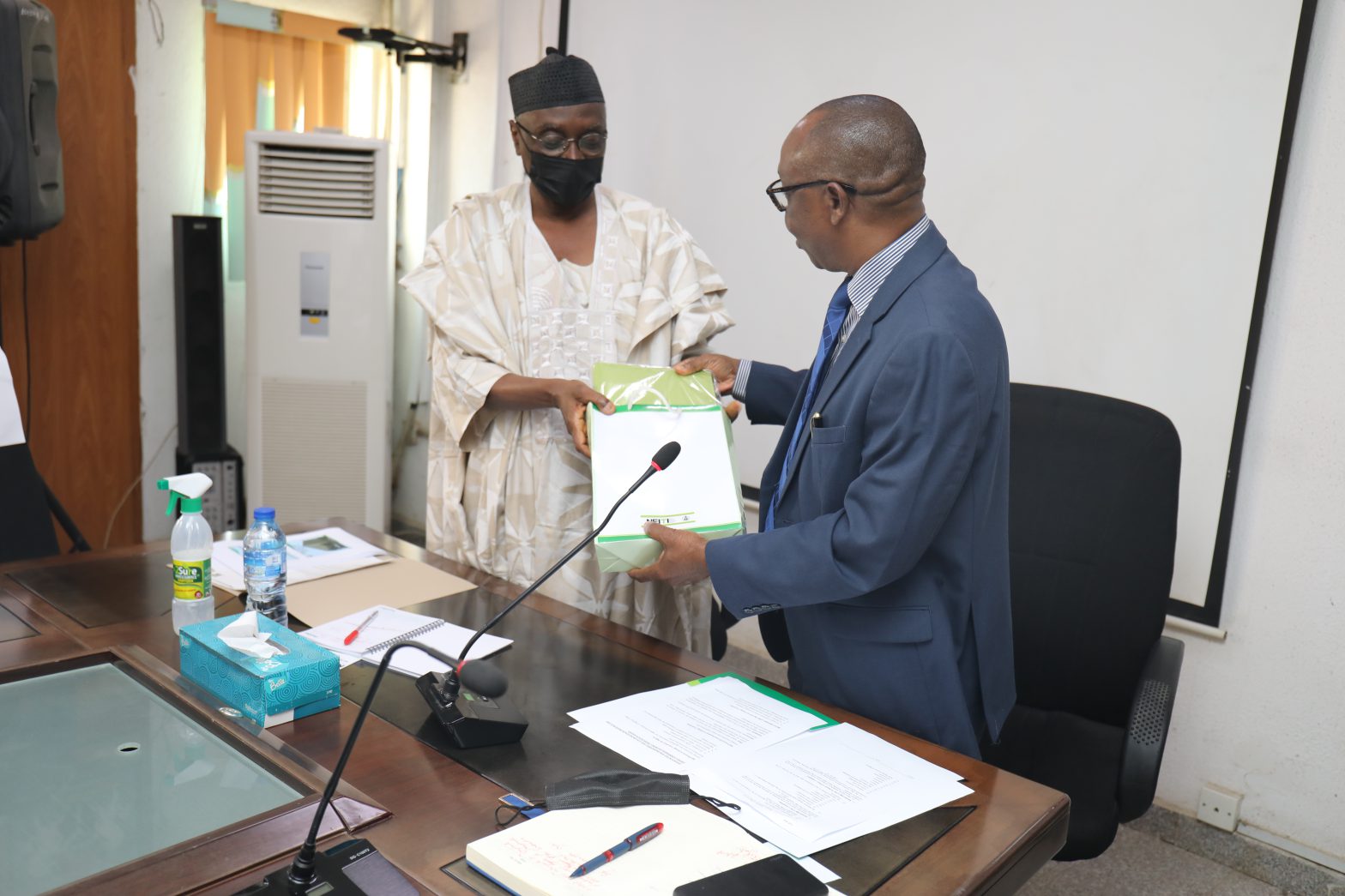
Abuja, October 6, 2022. The Nigeria Extractive Industry Transparency Initiative (NEITI) has called for a just, fair and equitable energy transition that prioritises Nigeria’s national interest in the engagements and response to the global energy transition process.
Speaking at the National Dialogue on energy transition convened by the Nigeria Extractive Industries Transparency Initiative (NEITI) in collaboration with the Africa Climate Foundation, BudgiT, and the Natural Resources Governance Institute (NRGI), the Executive Secretary of NEITI Dr. Orji Ogbonnaya Orji stated that Nigeria’s priorities in its considerations to shift to renewable energy should identify the opportunities in its untapped oil, gas and mining resources.
According to Dr. Orji, “NEITI believes that Nigeria’s energy transition journey must be driven and strictly guided by credible information and data on the country’s energy security and most importantly, our strategic national interest. Nigeria must not rush into a hasty energy transition without a thorough analysis of its comparative advantage and implications on our resources, economy, jobs and livelihoods of her citizens”.
The Executive Secretary stated that clarity in the attendant risks to Nigeria, strategy to manage the risks and plans to maximize the opportunities including the diversification of the economy, energy security and its attendant technology needs as well as citizens’ education and awareness will shape the country’s overall response.
He welcomed the prompt decision of the Federal Government to unfold the National Energy Transition Plan in February this year. He explained, “The National Dialogue will stimulate public debate and engagements on the Plan and ensure that its implementation is robust, equitable and responsive to the present and future needs of Nigerians”.
The NEITI Boss stated that as an agency with a mandate to promote transparency and accountability in the oil, gas and mining sectors, and a multi-stakeholder platform for dialogue on natural resources governance, NEITI has legitimate roles to play in shaping the public debates and government policy on energy transition.
He reiterated, “As the world transits from the use of fossil fuel to cleaner and sustainable energy, transparency and accountability must be mainstreamed into the process, including the reporting of emissions, disclosure of climate risks and overall governance of the energy industry in other to avoid the pitfalls of her past and present energy experiences.
He pointed out that being an oil and gas-dependent country, Nigeria is highly vulnerable and exposed to the risks and challenges of the energy transition with the announcement by twenty-six countries and some financial institutions at the last United Nations Climate Conference, COP26 in Glasgow that they are ending financing of overseas fossil fuel energy projects by the end of the year 2022. Dr. Orji maintained that this is an indicator that the global energy transition agenda is already reshaping the oil and gas landscape.
Also speaking, Nafi Chinery, West Africa Regional Manager at the Natural Resource Governance Institute said Nigeria’s emphasis on gas as a transition fuel aligns with the thinking of most countries in Sub-Saharan Africa, and the African Union Commission in the run-up to COP27.
Highlighting the huge energy poverty on the continent, she disclosed that Africa, with 17% of the global population, accounts for only 3.1% of the over 26,823 terawatt-hours of electricity generated, and 3.3% of the primary energy consumed globally in 2020.
Ms Chinery explained that the continent’s average per capita electricity consumption sits at about 600kilowatt hours per year compared with a world average of about 3,200-kilowatt hours. In other words, while Africa consumes less and accounts for little of the global carbon emission, it is impacted more by the effects of energy transition and needs to act fast in considering alternatives, if it is to guarantee the future of its economies.
Chairman of the Revenue Mobilisation Allocation and Fiscal Commission RMAFC, Alhaji Mohammed Bello urged Nigeria to lead the conversation on energy transition for Africa, by developing a roadmap for the implementation plan for the continent.
In his goodwill message, the Chief Finance Officer of NNPC Limited, Umar Ajiya expressed the company’s support for Nigeria’s 2060 net zero emissions target. Mr Ajiya who represented NNPCL Group CEO, Mele Kyari, commended NEITI for organizing the dialogue and helping to bridge the trust gap between the government and the people.
Also speaking, the EITI Country Manager, Anglophone Africa, Dr. Mike Uzoigwe highlighted that the energy transition discourse in Nigeria will impact the country’s revenue, leveraging on EITI data to produce debates and information policy on Energy transition.
The national dialogue looked at the role of gas, the diversification of Nigeria’s economy and the financing of Nigeria’s energy transition project. The event was organized by NEITI in collaboration with NRGI, BudgIT Foundation and African Climate Foundation to provide a multi-stakeholder platform for state and non-state actors to discuss, debate, engage and make meaningful contributions to the ongoing discourse on the transition from fossil fuel energy sources such as oil, gas and coal to cleaner, renewable and sustainable energy sources.
It had in attendance over two hundred participants drawn from government MDAs, the private sector and civil society.
Obiageli Onuorah
Head, Communications and Stakeholders’ Management
